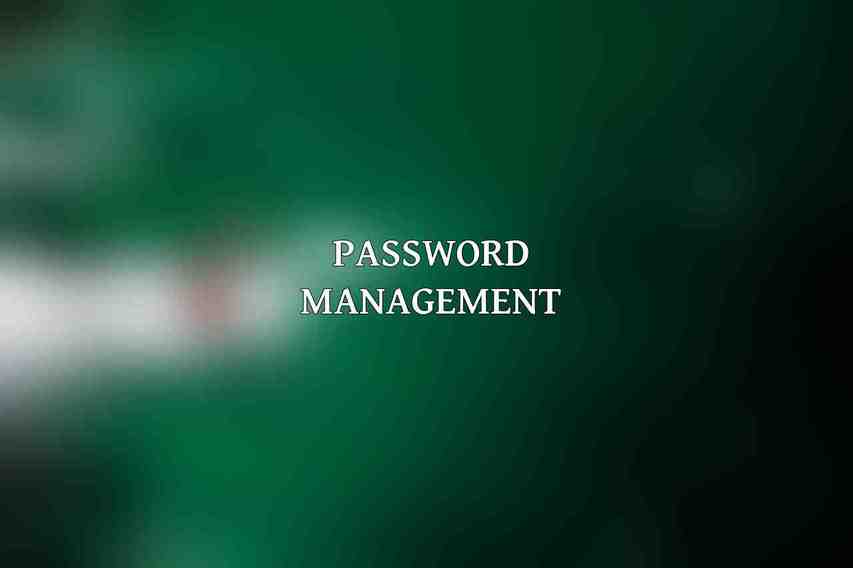Cybersecurity awareness is the understanding of potential risks on the internet and knowing how to protect against these risks. In the modern digital world of 2024, where cyber threats are constantly evolving, cybersecurity awareness is crucial for individuals, especially employees, to safeguard sensitive information and maintain the security of their organizations. Cybersecurity awareness encompasses knowledge about the various forms of cyber attacks, the importance of implementing preventive measures, and the significance of being vigilant in the online environment.
Password Management

When it comes to password management, creating strong and unique passwords is paramount to prevent unauthorized access to accounts and sensitive information. Here are some essential tips for effective password management:
– Create strong passwords: Utilize a combination of uppercase and lowercase letters, numbers, and special characters to enhance password complexity.
– Store passwords securely: Avoid writing down passwords and instead use a reliable password manager to securely store and manage passwords.
Security Software
The use of security software is a fundamental aspect of cybersecurity awareness. Employees should be well-versed in installing and maintaining security software to protect their devices and networks. Key practices include:
– Install and maintain antivirus software: Regularly update antivirus software and perform routine virus scans to detect and eliminate potential threats.
– Use a firewall: Enable and update firewalls on devices and routers to block unauthorized access to networks.
– Install browser security extensions: Employ ad blockers and anti-phishing extensions to enhance protection against online threats.
Social Engineering
Social engineering tactics, such as phishing scams and social media scams, are prevalent methods used by cybercriminals to manipulate individuals into divulging sensitive information. To combat social engineering attacks, employees should:
– Recognize and avoid phishing scams: Exercise caution when interacting with emails and messages, verifying sender information, and refraining from clicking on suspicious links.
– Beware of social media scams: Vigilantly monitor social media interactions, refrain from sharing personal information with unknown entities, and promptly report any suspicious activity.
Network Security
Maintaining robust network security is vital in safeguarding sensitive data and preventing unauthorized access. Key network security practices include:
– Use a strong home Wi-Fi password: Secure home networks with strong and unique passwords to prevent unauthorized users from accessing network resources.
– Be aware of public Wi-Fi security risks: Exercise caution when utilizing public Wi-Fi networks, consider using a VPN for added security, and refrain from transmitting sensitive data. Explore further with Top Security Training Programs for Businesses 2024
– Limit employee access to sensitive data: Employ the principle of least privilege, granting employees access only to essential data required for their roles, and regularly reviewing access permissions.
Mobile Security
Employees must prioritize mobile security to mitigate potential risks. best practices for mobile security include:
– Install security apps on mobile devices: Implement security applications to safeguard devices against malware and unauthorized access.
– Keep mobile devices updated: Regularly update mobile operating systems and applications to patch vulnerabilities.
– Be cautious about downloading apps: Verify the credibility of app sources, review app permissions before installation, and refrain from downloading suspicious applications.
Incident Response
Employees should be prepared to respond promptly and effectively to mitigate the impact on organizational security. key incident response measures include: Check this blog on How to Respond to a Security Breach: A Guide for Businesses 2024
– Report security incidents immediately: Notify appropriate personnel or IT support of any suspected security breaches. Learn more about Best Practices for Implementing Effective Security Policies 2024
– Follow company security incident response procedures: Adhere to established protocols for handling security incidents within the organization.
– Preserve evidence of the incident: Document relevant details and evidence of the incident to aid in investigation and resolution.
– Cooperate with authorities: Collaborate with law enforcement and relevant authorities to address security incidents and prevent future breaches.
Employee Training and Awareness

Continuous training and awareness initiatives play a significant role in enhancing cybersecurity practices among employees. Organizations should prioritize the following strategies:
– Conduct regular cybersecurity training sessions: Educate employees on the latest cyber threats, best practices, and protocols for maintaining cybersecurity.
– Provide employees with resources and materials: Equip employees with tools, guidelines, and resources to strengthen their cybersecurity knowledge and skills.
– Encourage reporting of suspicious activity: Foster a culture of reporting and transparency to swiftly address security concerns and potential threats.
– Reward good cybersecurity practices: Incentivize employees who demonstrate exemplary cybersecurity behavior and adherence to security protocols.
cybersecurity awareness is pivotal in safeguarding organizations against cyber threats and data breaches. By implementing and adhering to cybersecurity awareness tips, employees can significantly enhance their cybersecurity posture and contribute to a secure digital environment. It is imperative for organizations to prioritize cybersecurity education, training, and proactive security measures to mitigate risks and protect critical assets in an increasingly interconnected world. As we navigate the complexities of the digital world in 2024, fostering a culture of cybersecurity awareness and vigilance is essential for ensuring the resilience and security of organizations. Embracing these cybersecurity best practices empowers employees to become proactive defenders against cyber threats and invaluable assets in the protection of organizational data and systems.
Frequently Asked Questions
What is cybersecurity awareness?
Cybersecurity awareness refers to having knowledge of potential threats, understanding how to protect sensitive information, and recognizing the importance of following security protocols to prevent cyber attacks.
Why is cybersecurity awareness important for employees?
Cybersecurity awareness is crucial for employees as they are often the first line of defense against cyber threats. By understanding common risks and best practices, employees can help protect their organization’s data and systems. Learn more about Calculating ROI on Security Awareness Training for Businesses 2024
What are some common cybersecurity threats employees should be aware of?
Some common cybersecurity threats that employees should be aware of include phishing attacks, malware, ransomware, social engineering scams, and insider threats.
How can employees improve their cybersecurity awareness?
Employees can improve their cybersecurity awareness by participating in regular security training sessions, staying informed about the latest threats, practicing good password management, and being cautious with emails and attachments.
Is cybersecurity awareness a one-time effort or an ongoing process?
Cybersecurity awareness is an ongoing process that requires continuous education, training, and vigilance. As cyber threats evolve, employees must stay updated and adjust their security practices accordingly.

